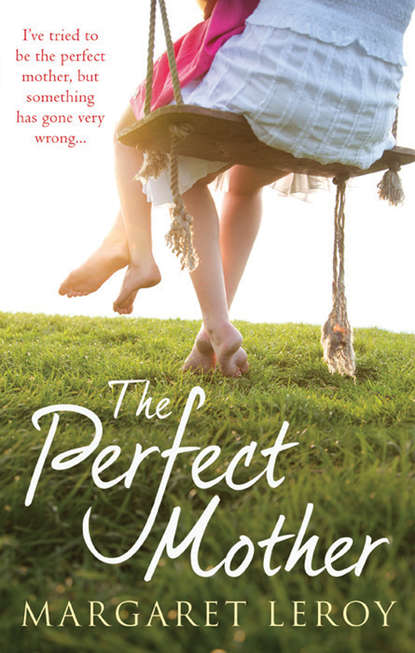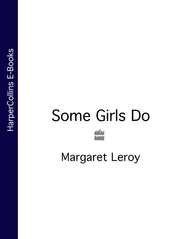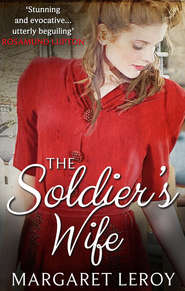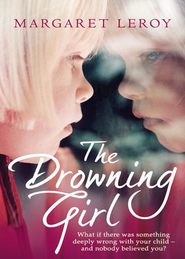По всем вопросам обращайтесь на: info@litportal.ru
(©) 2003-2025.
✖
The Perfect Mother
Автор
Год написания книги
2018
Настройки чтения
Размер шрифта
Высота строк
Поля
“This book was compelling from the first chapter…
Margaret Leroy’s twists are carefully orchestrated
so Grace had my sympathy and understanding. It
is a book I will never forget…Read it – it is such
a refreshing change from the ususal frothy stories.”
—Candis
“A stunning, engaging and enlightening tale of motherly
love…Gothic fiction at its best.”
—Minneapolis Star-Tribune
“Clearly the work of an accomplished writer – a haunting
book and a tantalising read.”
—Providence Journal
The Perfect Mother
Margaret Leroy
www.millsandboon.co.uk (http://www.millsandboon.co.uk)
ACKNOWLEDGEMENTS
I am deeply grateful to my wonderful editor, Catherine Burke, for her intelligence, warmth, and commitment to my writing, and to the marvellously dynamic team at MIRA, especially Oliver Rhodes; also to my agent Kathleen Anderson for all her tireless work on my behalf, to my UK agent, Laura Longrigg, for so much empathy and insight, and to Judy Clain, my editor at Little, Brown and Company, New York. Thanks to Lucy Floyd for her perceptive comments on the book. Mick, Becky and Izzie sustained me with their love and encouragement, as always.
I am indebted to the National Children’s Bureau, UK, for permission to quote from Trust Betrayed?, edited by Jan Horwath and Brian Lawson. Among the other books I read, there were two that I found particularly valuable: Hurting for Love, by Herbert A Schreier and Judith A Libow, and The Pindown Experience and the Protection of Children, the moving and disturbing report of the Staffordshire Child Care Inquiry conducted by Allan Levy, QC, and Barbara Kahan.
CHAPTER 1
Daisy hears them first: the crunch of feet on the gravel, the resonant clearing of throats outside our living-room window.
She darts to the window, tugs at the curtain.
‘They’re here,’ she says.
She kneels on the sofa, presses her face to the glass. Her warm breath mists the pane.
I turn off the light, so the room is lit by the dancing red of the firelight, and go to stand beside her, pulling the curtain open. My head is close to hers; I smell the musky sweetness of her hair. Sinead hangs back, fiddling with her new velvet choker, an early Christmas present from her mother. She’s reached that age when enthusiasms have to be carefully concealed; and anyway hip-hop is really more her thing.
I glance at Richard. He folds his Times and turns towards the window. In the shadowed room and the flickering of the firelight, I can’t see if he’s smiling.
‘Look,’ says Daisy. ‘They’ve got snowflakes on their eyelashes.’
There are ten of them in the darkness by the steps to our front door. They’re bundled in coats and scarves, the everyday colour leached from their clothes and faces by the torchlight. Their breath is thick, there are siftings of snow on their shoulders. They move around and shuffle into position. Nicky is there, in a woollen hat that hides her crisp black hair, with little reindeer dangling from her ears. She looks up at Daisy, grins and blows her a kiss. The earrings shiver.
The others have their eyes down; they’re fumbling through their music books with clumsy wet-gloved fingers. There are women I recognise from Daisy’s class at school, Kate’s mother, Natalie’s mother—women I only know by the names of their children—and men from the choir at the church round the corner, and two or three teenage children. The torches they carry suffuse their faces with red: a myriad little torches glimmer in their eyes. Next to Nicky there’s a man I don’t recognise. He has unruly fair hair, a darkly gleaming leather jacket; I can just make out his heavy eyebrows and the line of his jaw. Above them a nail-paring moon shines briefly through the cloud. Nicky knows what this moon is meant to mean: she’s been through Feng Shui and aromatherapy and her current passion is witchcraft—the kind of bland designer witchcraft you can read about in lavish books with pastel velour covers—and she says that the moons have names, and this is the birch moon—the first moon of the year, the moon of beginnings.
The snow began this morning, with a perfect, theatrical sense of timing. In our garden, there’s a milky skin of ice on the pond, and the dangling tendrils of forsythia are white knotted strands of wool, and the stone frog fountain has a hat of snow. We played snowballs, Sinead and Daisy and me, staying out far too long, not realising how chilled we were, and when we finally came back into the warmth of the kitchen Daisy’s fingers were red and shiny in spite of her gloves, and she cried as the blood came back into them. I told her they hurt because they were getting better, warming up, but it didn’t help to know that, she couldn’t stop crying. In the cold the foxes are getting bolder, coming close to the house. This afternoon I saw them on the patio, looking in at the French window then shying away, mangy, thin, golden, one with a paw that it couldn’t touch to the ground, quite silent yet leaving perfect footprints. Since then more snow has fallen, blotting out the foxes’ footprints and our own, so our back garden looks as though no one has ever been there. If you went out there now, you would feel a thing you rarely feel in London, a sense of how high the sky is, of the immensity of the night.
The singers clear their throats and start to sing. Their faces are lifted, eager, their breath like smoke. Singing voices sound different outside, fragile, thinner, half their resonance swallowed up by the air; yet so precise and perfect. I see the ships in my mind’s eye: they’re like the ships in a toddler’s picture book, with rainbow-painted prows and many silken sails, playful, gaudy, cresting the curled waves.
Daisy gives a little sigh and rests her head against me. Sinead comes close, sits on the arm of the sofa. They’re both thoroughly irreverent, they have their own salacious parodies of carols, picked up in the playground, yet they’re held, stilled, by the song. The room smells of cinnamon and warm wine, of the forest freshness of juniper, of the apple-cake that is cooling in the kitchen, moist and sweet and crusted on top with sugar. I want to hold this moment, to make it last for ever, the scents and the singing and firelight and Daisy’s head against me.
There’s a long still moment after the end of the song, like a held breath. Then Daisy applauds extravagantly, and I turn on the lights and hurry to the door and open it wide.
There are seven stone steps up to our door. Nicky comes first, bounding up two at a time. She’s pinkskinned, eager-eyed.
‘Catriona—you look so good.’
I kiss her; her face is cold.
‘Were we brilliant?’ she says.
‘You were wonderful.’
She pulls off her hat, shakes out her spiky hair. Wetness sprays from her, the reindeer earrings dance. She holds out the Christian Aid tin, rattles it hopefully. Daisy puts in our money, with a satisfactory clatter.
The others follow her, noisily talking; they are themselves again, separate, banal, the braid of music that bound them together unwoven. They shrug off their wet heavy clothes; the powdering of snow on their hair is melting already. They stretch out their arms and relish the warmth. The house is suddenly full of noise, of energy.
I bring the saucepan from the kitchen and dole the wine into tumblers. Daisy and Sinead hand the glasses round, carrying them like precious things, holding them right at the top so as not to burn their fingers. I see their heads as they weave their way through the crush: Sinead with hair that’s dark and thick like her mother’s, pulled back and fastened with a flower scrunchie; and Daisy, blonde like me.
Nicky, passing, whispers in my ear: ‘D’you like my new recruit?’ She gestures rather obviously towards the man in the leather jacket.
I nod.
‘Fergal O’Connor. He’s a sweetie—bringing up his little boy on his own. Jamie goes to St Mark’s, I think. Remind me to introduce you.’
She moves off to talk to Richard.
I chat for a while to Kate’s mother and Natalie’s mother. They drink eagerly, cradling the tumblers between their hands to warm them.
Natalie’s mother looks greedily round the room.
‘Nice house,’ she says.
Her teeth are already stained purple by the wine.
I shrug a little. ‘Well, we’re so lucky to live here.’
‘I’ll say.’ Her fervour isn’t quite polite.









